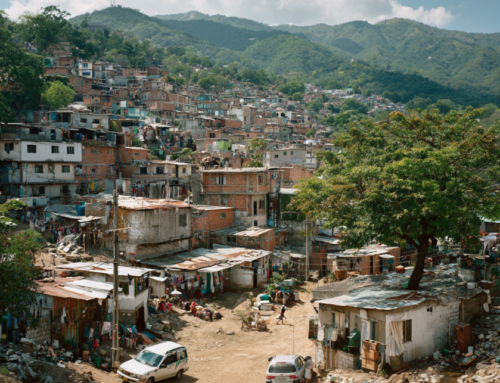By Michael Savage Who Heads the Savage-Rivera Honduras Relief Foundation in New Canaan, CT
Honduras, a Central American country with a population of approximately 9.9 million, faces significant challenges in its healthcare system.
My wife, Sandra, who was born in Honduras, has seen first-hand the problems with the healthcare system in the country. Heck, I think we can agree that most every country in the world has healthcare issues that could be improved or completely overhauled.
But in smaller countries like Honduras, we’ve seen the issues amplified. That is why my wife and I started the Savage-Rivera Foundation to provide relief to impoverished Honduran families. While our collection of clothes, toys and educational materials to send to poor families in that country is a mere blip, we can do so much more to help bolster and improve the medical systems in Honduras.
So, let’s examine the current state of healthcare in Honduras, including access to medical services, public health initiatives, and the various challenges the country faces in providing adequate healthcare to its citizens.
Overview of the Honduran Healthcare System
Honduras has a mixed healthcare system comprising both public and private sectors:
- Public Sector: Operated by the Ministry of Health (Secretaría de Salud) and the Honduran Social Security Institute (Instituto Hondureño de Seguridad Social, IHSS).
- Private Sector: Consists of for-profit and nonprofit organizations, including NGOs and religious institutions.
Despite efforts to improve healthcare provision, Honduras continues to struggle with inadequate infrastructure, limited resources, and significant disparities in access to care.
Access to Medical Services
Access to medical services in Honduras is characterized by significant disparities between urban and rural areas:
- Urban Areas:
- Better access to hospitals and specialized care
- Higher concentration of healthcare professionals
- More advanced medical equipment and facilities
- Rural Areas:
- Limited access to basic healthcare services
- Shortage of healthcare professionals
- Lack of specialized care and advanced medical equipment
These disparities result in many rural residents having to travel long distances to receive adequate medical care, often at significant personal expense.
Public Health Initiatives
The Honduran government, in collaboration with international organizations, has implemented several public health initiatives:
- Expanded Program on Immunization (EPI): Aims to increase vaccination coverage for preventable diseases.
- National HIV/AIDS Program: Focuses on prevention, treatment, and support for those affected by HIV/AIDS.
- Vector-borne Disease Control: Efforts to combat diseases like dengue, Zika, and malaria.
- Maternal and Child Health Programs: Initiatives to reduce maternal and infant mortality rates.
While these programs have shown some success, their effectiveness is often limited by resource constraints and implementation challenges.
Major Healthcare Challenges
Honduras faces several significant healthcare challenges:
- Disease Outbreaks:
- Recurring outbreaks of dengue fever, Zika virus, and chikungunya
- High prevalence of HIV/AIDS, particularly in certain regions
- Persistent issues with waterborne diseases due to inadequate sanitation
- Inadequate Healthcare Infrastructure:
- Shortage of hospital beds and medical equipment
- Limited capacity for emergency and critical care
- Aging facilities in need of renovation and modernization
- Shortage of Healthcare Professionals:
- Low doctor-to-patient and nurse-to-patient ratios
- Brain drain of medical professionals to other countries
- Uneven distribution of healthcare workers, with concentration in urban areas
- Limited Access to Essential Medicines:
- Frequent stockouts of essential drugs
- High out-of-pocket costs for medications
- Issues with counterfeit or substandard medicines
- Funding and Resource Allocation:
- Insufficient government spending on healthcare
- Dependence on external aid and NGO support
- Inefficiencies in resource allocation and management
- Non-Communicable Diseases:
- Rising rates of chronic conditions such as diabetes, hypertension, and cancer
- Limited capacity for early detection and management of these diseases
Recent Developments and Future Outlook
In recent years, Honduras has made efforts to address some of these challenges:
- Decentralization of healthcare services to improve access in rural areas
- Implementation of telemedicine programs to connect remote areas with specialist care
- Increased focus on primary healthcare and preventive medicine
- Partnerships with international organizations to strengthen the healthcare system
Despite these efforts, significant challenges remain. The COVID-19 pandemic has further strained the already fragile healthcare system, highlighting the need for continued investment and reform.
Honduras faces numerous challenges in providing adequate healthcare to its population. While progress has been made in some areas, such as vaccination coverage and HIV/AIDS management, significant disparities in access to care persist. Addressing these challenges will require sustained effort, increased investment in healthcare infrastructure and human resources, and innovative approaches to healthcare delivery.
As Honduras continues to develop, improving the healthcare system remains a critical priority for ensuring the well-being of its citizens.
ABOUT MIKE SAVAGE OF NEW CANAAN, CT
Michael Savage from New Canaan is the Founder of 1-800 Accountant that helps businesses with their accounting services and needs through cutting-edge technology and customer support. He runs the company alongside CEO Brendon Pack.
In his spare time, Savage enjoys creating unique koi ponds, collecting Michael Jordan sneakers, vintage Lego sets, and admiring muscle cars and unique pop art. He and his wife also spearhead the Savage-Rivera foundation to help impoverished families in Honduras.




